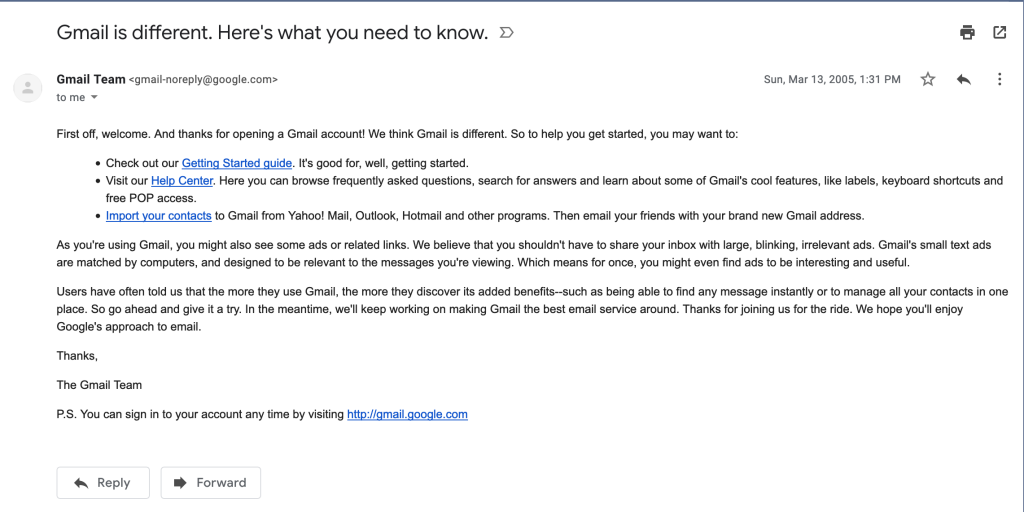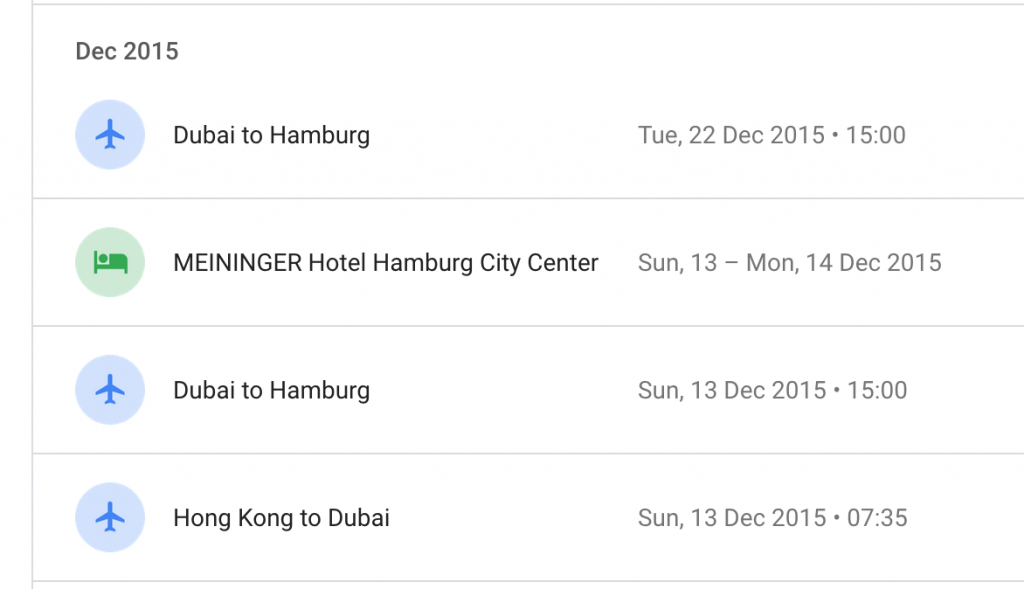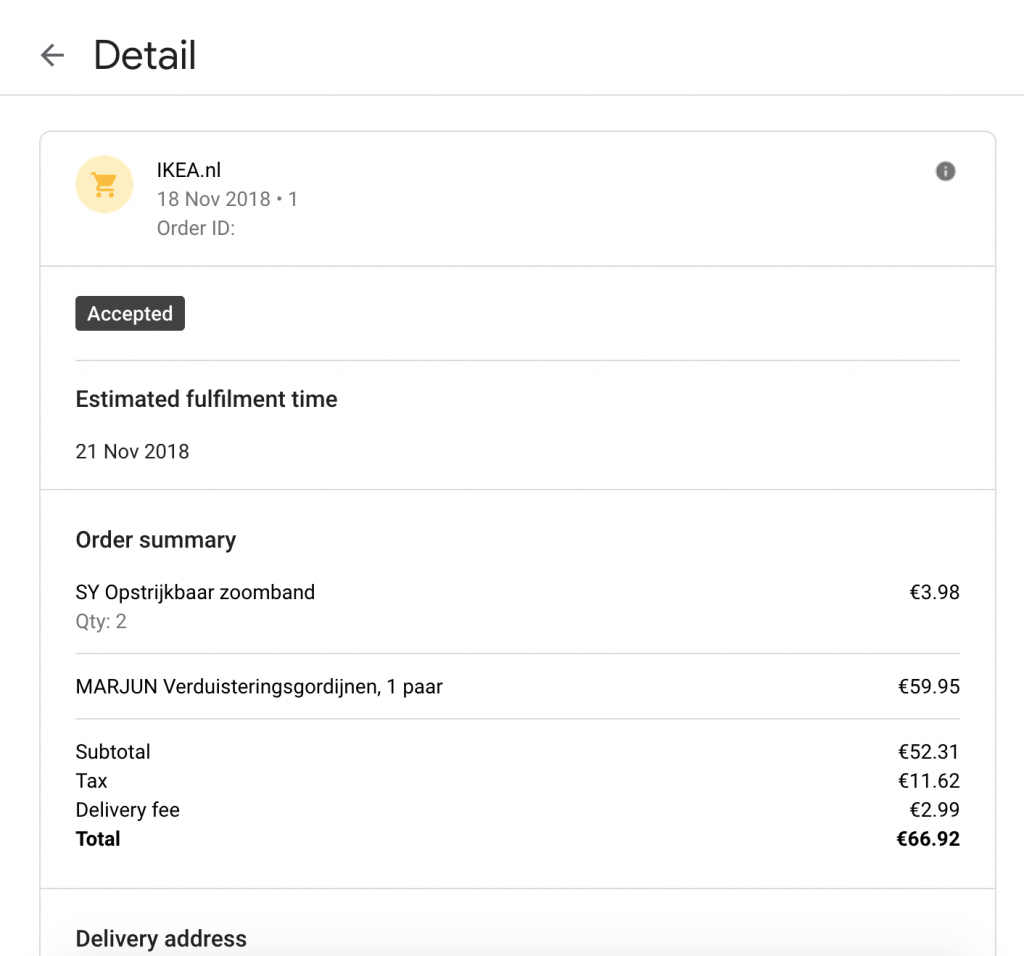A revolutionary email service
I signed up to Gmail back in 2005: There was a “beta” tag next to the logo. Joining was only possible with an invitation from someone who was already using it.
As I did not know anyone using Gmail I had to find a random person online who could send me an invitation. Giving my email address to some stranger felt a bit dodgy, but it worked out to get my signed up.

In 2005 Gmail was better than any other email provier: It gave you 1GB of space for free, so you could store any email you would ever receive without having to delete.
The only caveat was: Agreeing to have Google read through your emails.
In 2005 I was fine with ads next to my emails. In fact I checked out some of the ads. To my disappointment, they were not actually matching well with the email content.
Yet a lot of things changed over the years. I’m not fine with Google analyzing my emails anymore.
Structured data down to every little detail
Google knows and understands all my online purchases, hotel reservations, app downloads and flight destinations. All of this data is stored in a structured manner so Google can target the right ads to me.
When I log into myaccount.google.com,I can see all flights and hotel reservations I’ve made going back to 2013:

Google structures data down to the level of flight reservation numbers. Overall that feels quite scary. For online orders, data includes the shop where you ordered, all line items, prices and delivery time.

How much should Google know?
Add up the information from Google Search History, Android Location History and YouTube viewing history. Google knows basically everything you are doing online. And as a final touch link all of this with all purchases from your personal debit or credit card.
As a result you get that Google pretty much knows what you are doing in every second of your life. It analyzes, structures and links any information it stores. All of this for the purpose of better understanding you and displaying more suitable advertisements.
Yes, you can turn some of this tracking of and delete data when you want to. However, for me it is more a question of principles.
Making a principle-based decision for change
When making the decision I asked myself three questions
- Do I want to be customer of a company that profits from knowing what I do in every second of my life?
- Do I want my personal profile to be sold to other companies?
- Do I want to take the risk of storing a large amount of personal information with one company?
The answer for all three questions was no. (I would be curious if anyone would consciously answer yes ). Therefore I decided to quit Gmail and changing to an independent email provider. The cost of paying with personal data feels higher to me than paying a few euros for an email service that values privacy.
To conclude: Google was right in 2005 when they told me “Gmail is different”. I just did not understand the full story how.